Choline
Posted on February 20, 2015
199 Views
Choline – utilizing fats in the body
Description
Choline’s function is similar to a vitamin. It is synthesized by the action of vitamin B12 and folic acid with amino acids methionine and glycine. However there is disagreement as to whether the amount would be adequate if there were none in the diet for a long period. If future researchers find a dietary need for it, it will be reclassified as a vitamin.
Choline functions with inositol as a basic constituent of a fatty substance called lecithin. It is water soluble and considered one of the B – complex vitamins and a lipotropic (fat emulsifier). It is present in the body of all living cells and widely distributed in animal and plant tissues.
Choline is used to make up acetylcholine, an important nerve transmitter which helps balance nervous activity. Acetylcholine plays an important part in memory and some studies have shown an increase in memory, intelligence and often helps those with premature senility when large amounts of choline and vitamin B5 are supplemented.
Functions
Functions with inositol in the utilization of fats and cholesterol in the body.
As an important body metabolic reaction and works on immunity build up and liver function.
Prevents fat from accumulating in the liver and facilitates the movement of fats into the cells.
Combines with fatty acids and phosphoric acid within the liver to form lecithin.
Essential for the health of the liver and the kidneys.
Essential for the health of the myelin sheaths of the nerves; the myelin sheaths are the principal component of the nerve fibres.
Plays an important role in the transmission of the nerve impulses.
Helps to regulate and improve liver and gallbladder functioning and aids in the prevention of gallstones.
Deficiency Symptoms
Nervousness and twitchiness
Poor memory
Sluggish liver and fatty infiltrations of the liver, producing bloating and other gastrointestinal symptoms.
Fatty deposits on the liver, resulting in bleeding stomach ulcers, heart trouble and blocking of the tubes in the kidneys.
Deficiency can result when there is too little protein in the diet.
Prolonged deficiencies can cause high blood pressure (hypertension), cirrhosis and fatty degeneration of the liver, atherosclerosis.
Toxicity Effects
Daily requirements of choline are not known. Excessive doses over a long period may produce a deficiency of vitamin B6.
Medical and Therapeutic Uses
RDA 500 – 6,000mg.
If supplementing with lecithin, take chelated calcium to maintain the phosphorus: calcium ratio in the body. Most authorities recommend consuming the same amount of inositol as choline and that the B – complex vitamins function better when all are taken together.
Has been useful in reducing hypertension because it strengthens weak capillary walls.
Heart palpitations, dizziness, headaches, ear noises and constipation have been relieved or removed entirely with 5 – 10 days after administration of choline.
Insomnia, visual disturbances and blood flow to the eyes have also benefitted from choline therapy.
Because choline is a fat and cholesterol dissolver, it is used to treat atherosclerosis and hardening of the arteries.
Can be used to treat fatty livers, liver damage, haemorrhaging of the kidneys, nephritis and glaucoma. MS, muscular dystrophy, eczema, alcoholism, hyperthyroidism, stroke and helps with Huntington ’s chorea.
Antagonists
Contraceptive pill
Alcohol
Sulphur drugs – produce an increased need for choline.
Good Dietary Sources
Lecithin, egg yolk, liver, brewer’s yeast, wheat germ, green leafy vegetables, dandelion, milk thistle, fenugreek, anise.

